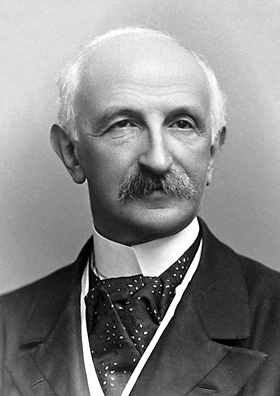On September 1, 2023, the Hague Convention on the Recognition and Enforcement of Foreign Judgments in Civil or Commercial Matters enters into force. In German domestic law, the jurisdiction for the enforcement of foreign judgments is newly defined – as of today, the dictrict courts (Landgerichte) will have exclusive competence in these matters.
Hague Convention on the Recognition and Enforcement of Foreign Judgments
On 1 September 2023, the Hague Convention on the Recognition and Enforcement of Foreign Judgments in Civil or Commercial Matters (“Judgments Convention”) enters into force. Ukraine had ratified the Convention in August 2022. As a result of this ratification and the preceding accession of the European Union, the required number of member states had been reached and the Convention came into force one year later. The practical significance is still limited to the relationship with Ukraine, because among the EU member states, the Brussels Ia Regulation takes precedence.
The Judgments Convention provides that judgments of a contracting state that are valid and enforceable in the state of origin are to be recognized and enforced in the other contracting states. The prerequisite is that the foreign court bases its international jurisdiction on a ground specified in Art. 5 Judgments Convention. Art. 7 para. 1 Judgments Convention defines six grounds on which recognition and enforcement may be refused.
In April 2023, the European Council had decided to enter into treaty relations with Ukraine under the Judgments Convention. According to the Council, no fundamental obstacles, such as related to the independence and efficiency of the judiciary, the fight against corruption or the respect of fundamental rights, which could prevent the EU from entering into treaty relations with Ukraine.
Enforcement Action: New Regulation of Jurisdiction in Sec. 722 ZPO
The recognition and enforcement in Germany of a foreign judgment from a state with which no bi-lateral or multi-lateral treaty on recognition and enforcement exists is governed by Sec. 328 and 722* German Code of Civil Procedure (Zivilprozessordnung, ZPO). All effects of a foreign judgment with the exception of enforceability are recognized under Sec. 328 ZPO. Enforceability in Germany, on the other hand, must be ordered separately in an enforcement judgment (exequatur) under Sec. 722 para. 1, 723 ZPO. Sec. 723 para. 2 ZPO essentially refers to the grounds on which recognition can be refused under Sec. 328 ZPO.
Up to now, jurisdiction for enforcement actions was allocated to the local court (Amtsgericht) or district court (Landgericht) where the debtor has his general place of jurisdiction or otherwise to the local court or district court where an action could be brought against the debtor pursuant to Sec. 23 ZPO, i.e. on the basis of assets located in the court district. As of 1 September 2023, the local courts will no longer have jurisdiction and actions for enforcement may only be brought in the district courts.
Another new feature is the option for federal states to concentate these enforcement proceedings with selected district courts, even across state borders. It would make sense to allocate these matters to the new “Commercial Chambers”, which the states are allowed to establish under (pending) new legislation (Gesetz zur Stärkung des Justizstandortes Deutschland durch Einführung von Commercial Courts und der Gerichtssprache Englisch in der Zivilgerichtsbarkeit). This would help to create centers of competence for all civil and commercial cross-border matters. I would also stongly argue in favour of allocating the jurisdction for all international legal assistance matters to these new courts as well.
* At the time of posting, the English translation had not yet been updated to reflect the change discussed in this post.
The photo shows the Dutch jurist and politician Tobias Asser (* April 28, 1838 in Amsterdam; † July 29, 1913 in The Hague). He founded the Hague Conference and was awarded the Nobel Peace Prize in 1911 for his services to the Hague Conference and establishment of the Permanent Court of Arbitration in The Hague.

